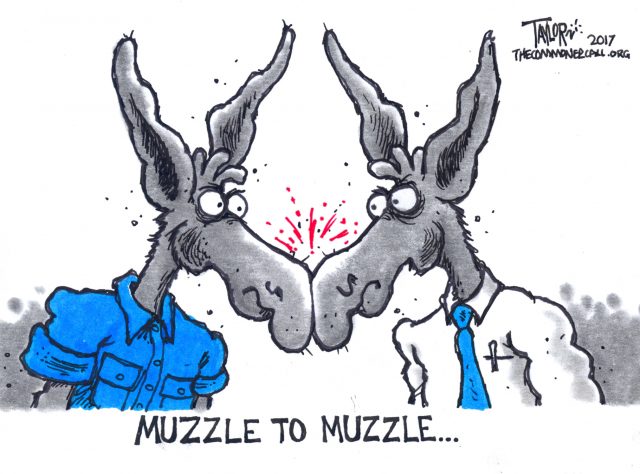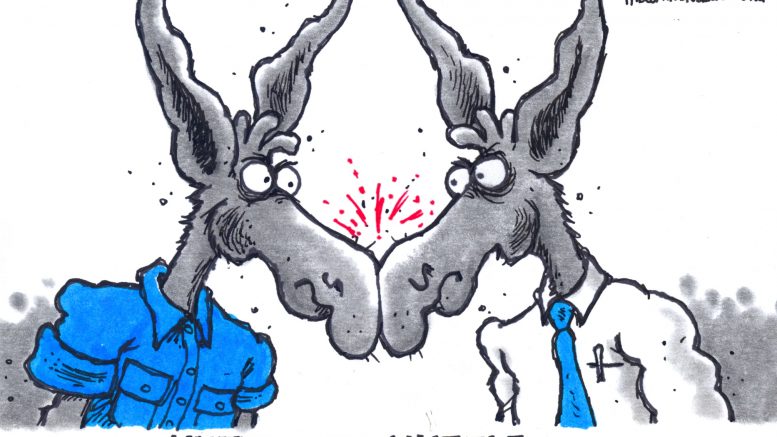
How a vital term in U.S. political life lost its significance—and could regain it today.
By Win McCormick
The New Republic (4/20/18)
What distinguishes a progressive from a liberal? This is one of the more pervasive ambiguities in contemporary American political discourse.
In a recent issue of the journal Democracy, the historian Sean Wilentz addressed it head-on: Liberals, he argues, recognize the flaws of capitalism, are dedicated to remedying them, and have great achievements to their credit in that regard, notably those of the New Deal, the New Frontier, and the Great Society. Progressives are meanwhile “emphatically anti-liberal”—because they are hostile to capitalism and, “deep down, harbor the hope that one day, perhaps through some catastrophic event, American capitalism will indeed be replaced by socialism.”
“For progressive to be truly meaningful again, it has to be more than a synonym for liberal; it has to recapture the civic republican heart of the original Progressive movement—etymologically and in practice.”
But here’s the problem: The progressives Wilentz describes aren’t really advocates for socialism in its authentic sense of total “public ownership of finance, industry, and agriculture.” Rather, he writes, they claim for socialism (“democratic socialism,” of course) the social-welfare achievements of American liberalism and Scandinavian social democracy, while rejecting the full architecture of those ideologies.
In practice, however, Wilentz’s theory doesn’t really apply: Progressive and liberal are precisely synonyms in American political life—and have been since the 1980s, when Ronald Reagan succeeded in making liberals feel ashamed of the word and fearful of associating with it, and they started calling themselves progressives instead. This wasn’t the introduction of a new politics; it was the rebranding of an existing one.
The only way to find a meaningful usage of progressive is to go back to when it first came into political currency. In his marvelously succinct book Progressivism: A Very Short Introduction, the historian Walter Nugent offers a clear view of what the word denoted then …

